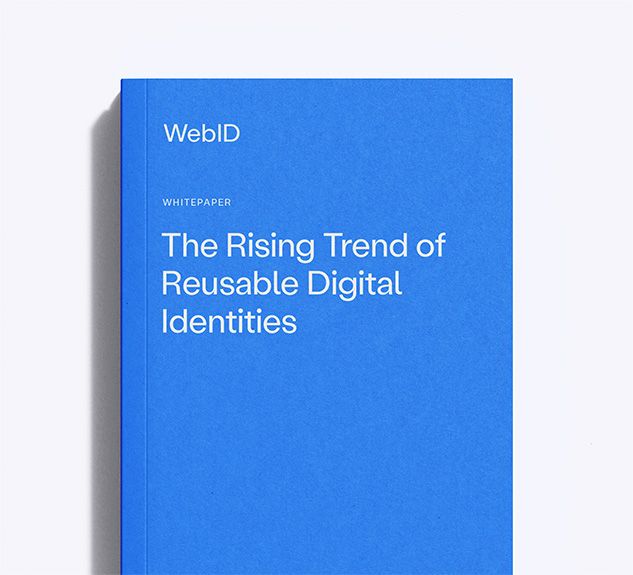Ultimate Beneficial Owners (UBOs)
In the world of financial services and corporate compliance, identifying ultimate beneficial owners (UBOs) is a fundamental component of the Know Your Business (KYB) process.
This process is essential for ensuring transparency, meeting legal and regulatory compliance requirements, and mitigating the risks of money laundering, terrorist financing, and other forms of financial crime. But what exactly does the term “ultimate beneficial owner” mean, and why does it play such a crucial role in the KYB process?
Definition: Ultimate Beneficial Owners (UBOs)
Ultimate beneficial owners of a company are individuals who ultimately control a business or organization and/or derive significant financial benefits from its business activities.
According to the EU Anti-Money Laundering Directive (AMLD), a person is generally considered the ultimate beneficial owner of a company if they:
- Hold more than 25% of the shares in a company directly or indirectly,
- Control voting rights that allow them to influence business policy, or
- Exercise control over the company in another way (e.g., through informal agreements).
If no person meets the above criteria, the management is often considered the company’s beneficial owner.
Reasons for Identifying Ultimate Beneficial Owners
The identification and verification of a company’s ultimate beneficial owners, as required in the KYB process, are crucial for several reasons:
Transparency and Trust
It provides clarity about who is behind a company. Identifying ultimate beneficial owners reduces the risk that organizations are used for illegal activities or that the company being assessed is a shell company.
Regulatory Compliance
Financial institutions and companies in many other sectors are legally required to identify UBOs during onboarding (and periodically afterward) to comply with applicable anti-money laundering (AML) laws.
Risk Management
By identifying UBOs, companies can detect potential risks earlier, for example, by checking their business partners’ connections to high-risk individuals or organizations.
The KYB Process and the Role of Ultimate Beneficial Owners
KYB (Know Your Business) refers to the process companies must follow to verify the identity and structure of their business partners in accordance with AML regulations.
Identifying UBOs is a crucial step in this process and cannot be skipped if financial crime risks are to be minimized. A typical KYB process includes:
- Collecting Company Information and Data
The first step in a compliance-compliant KYB check involves gathering information about a company’s legal structure and owners. This includes trade register extracts, company statutes, and ownership lists.
- Verification
The collected company data and information must be verified using independent sources, such as trade register databases or official documents.
- Screening
Once the company’s information is verified, a KYB process that complies with AML regulations also requires screening the UBOs against sanctions lists, PEP lists (politically exposed persons), and other risk databases.
- Risk Assessment
Once all company and UBO information has been collected, a risk assessment can be conducted. This step allows businesses to analyze whether a relationship with the examined company or its UBOs presents an increased risk.
Challenges in Identifying Ultimate Beneficial Owners
In an ideal business world, determining and verifying a company’s legal entities and UBOs would be straightforward. However, the reality is different, presenting several challenges:
Complex, Opaque Corporate Structures
Companies are often embedded in networks of subsidiaries and offshore firms, making it more difficult to identify their ultimate beneficial owners.
False or Incomplete Information
Companies may knowingly or unknowingly provide false or incomplete information about their UBOs due to a lack of internal transparency.
Regulatory Differences
The definition and requirements for identifying UBOs can vary by country, complicating the KYB verification process, especially in an international context.
Conclusion
Identifying a company’s ultimate beneficial owners is a core component of KYB and plays a crucial role in ensuring compliance and reducing financial risks.
To successfully identify UBOs even in complex corporate structures, using reliable sources is essential. Many companies still conduct corporate identity verification manually – even though they could ensure compliance with legal and regulatory obligations more efficiently by leveraging innovative solutions and well-defined procedures.
WebID offers CorporateID, an automated corporate identity verification solution that provides AML-compliant company and ownership structure data in no time – even for complex corporate entities. This solution relies on the Bundesanzeiger (Federal Gazette) as its primary source, ensuring reliable and accurate identification of ultimate beneficial owners.
The Rising Trend of Reusable Digital IdentitiesThe Rising Trend of Reusable Digital Identities
